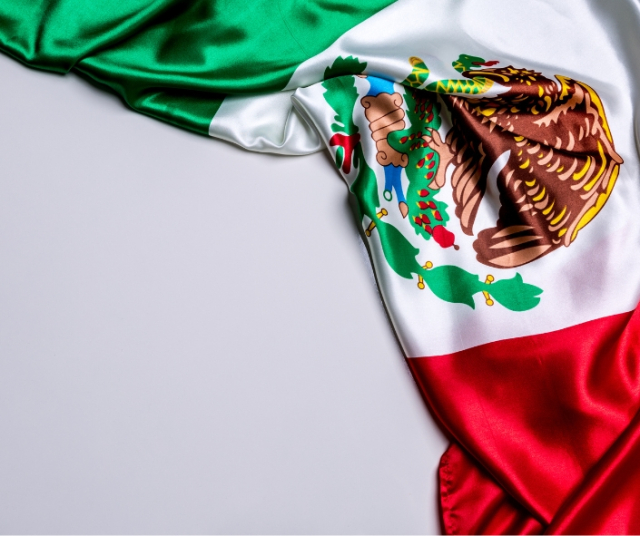The history of Mexico is marked by courageous struggles and transcendental moments that shaped its identity and destiny as a nation. One of the most significant episodes in this story is the Consummation of Independence .
The context in which the struggle for Mexican independence took place is essential to understand the magnitude and urgency of this historic movement. At the end of the 18th century and the beginning of the 19th century, Mexican society was imbued with tensions, inequalities, and a growing awareness of their identity as a people. This context provided the fertile ground for the cry of freedom to resonate and trigger a profound change in the history of Mexico.
The conquest and colonization of Mexico by the Spanish in the 16th century left an indelible mark on society and culture. The imposition of European culture, the exploitation of natural resources and the discrimination of the indigenous and mestizo population created deep divisions and discontent. Despite the centuries that have passed since the arrival of Hernán Cortés, the wounds left by colonization were still evident and generated a growing desire for emancipation.
Influence of Enlightenment Ideas
The 18th century witnessed the spread of Enlightenment ideas throughout the world, including Mexico. European thinkers, such as Voltaire, Rousseau , and Montesquieu , promoted concepts of equality, liberty, and limited government. These ideas resonated with Mexican intellectuals and leaders who began to question colonial authority and consider the possibility of an independent Mexico.
The Enlightenment influenced the creation of secret societies and discussion groups that promoted the debate of revolutionary ideas and the search for independence. These groups provided the breeding ground for the coming insurgent movement.
The economic control exercised by Spain over Mexico also played an important role in the gestation of independence. Trade restrictions and the exploitation of Mexican resources for the benefit of the metropolis caused resentment and economic difficulties in the colony. As the population grappled with poverty and lack of opportunities, discontent grew and the idea of independence began to take hold as a solution to these problems.
Discontent and Social Inequalities
Mexican colonial society was strongly stratified, with marked differences between criollos (descendants of Spaniards born in the Americas ) and peninsulares (Spaniards born in the Iberian Peninsula). This division generated tensions and discontent among social groups. The criollos, in particular, longed for greater control over their affairs and felt marginalized by the dominance of the peninsulares in the colonial administration.
Mestizos and indigenous people also suffered discrimination and exploitation, creating a deep sense of injustice and a desire for change. These marginalized groups found in the struggle for independence an opportunity to claim their rights and greater equality.
Despite facing challenges and setbacks, the independence movement gained momentum. Charismatic leaders such as José María Morelos and Vicente Guerrero joined the fight, and the insurgent forces achieved significant victories. However, they also faced internal divisions and the fierce response of the royalist army.
A crucial turning point was the capture and execution of Morelos in 1815. Although his death temporarily weakened the movement, it failed to extinguish the yearning for independence. Another insurgent leader, Agustín de Iturbide , switched allegiances and allied himself with the independence forces, giving an unexpected turn to the fight.
The Plan of Iguala and the Consummation of Independence
On February 24, 1821, Iturbide and Vicente Guerrero signed the Plan of Iguala , which established three basic guarantees: the independence of Mexico, the equality of all ethnic and social groups, and the union of all Mexicans. This plan paved the way for the consummation of independence.
On September 27, 1821, the Triguarante Army, led by Agustín de Iturbide, triumphantly entered Mexico City. This event marked the official consummation of Mexican independence from Spanish rule. September 27 became an emblematic date in Mexican history, known as the Day of the Consummation of Independence.
Impact and Legacy of the Consummation
The Consummation of Independence had a profound impact on the history and identity of Mexico. It ended three centuries of Spanish colonial rule and laid the foundations for the construction of a new nation. However, independence did not immediately resolve the political and social challenges facing Mexico. Internal struggles for power and the organization of the new government continued during the following decades.
One of the most enduring legacies of the consummation of independence is the creation of a Mexican national identity. The struggle for independence forged a sense of unity among different ethnic and social groups who shared a desire for freedom. The Mexican flag, with its green, white and red colors, symbolizes the blood spilled by the heroes of independence.
Celebration and Commemoration
Every year, on September 27, Mexico celebrates the Day of the Consummation of Independence with ceremonies, parades and cultural events throughout the country. It is a time to remember and honor the brave patriots who fought for freedom and self-determination. The consummation of independence has become a symbol of national pride and a reminder of the importance of perseverance and unity in the pursuit of an ideal.
